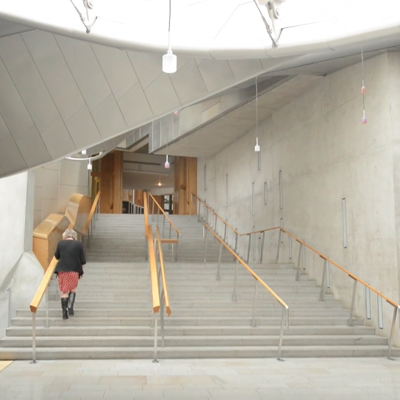Public policy highlights January 2020
Our policy committees have had a busy month analysing and responding to proposed changes in the law. We do this to positively influence the creation of a fairer and more just society through our active engagement with the Scottish and United Kingdom Governments, Parliaments, wider stakeholders and our membership.
You can read more about some of the month's highlights below:
Transient visitor levy
Our Tax Law Sub-Committee responded to the Scottish Government’s consultation.
We believe that a national framework would provide a consistent approach, enabling businesses operating across multiple authority areas to comply more easily, and making travelling clearer for tourists. Local discretion on some aspects of the levy would be advantageous so that it could be tailored to local circumstances as required, due to the varying tourism numbers, economies, and challenges across Scotland.
We support the levy as a percentage of total accommodation charge and highlighted that this is likely to be the fairest and most easily applied format. Further clarity is needed around whether the total accommodation charge would include meals and other services.
We consider it appropriate to include the application of the levy to ‘commercially let’ accommodation, but seek clarity around this definition – would second homes used by friends and family for a fee would be subject to the levy? We asked where the collection and compliance burden of the levy lies: the responsibility might sit with the accommodation provider or with another business advertising the accommodation and taking bookings and it is important that this liability is made clear.
Scottish Biometrics Commissioner Bill
Our Criminal Law Committee and Privacy Law Sub-committee previously responded to the Scottish Parliament’s Justice Committee’s Call for Evidence on the Scottish Biometrics Commissioner Bill.
The Committee issued a briefing to all MSPs ahead of the Scottish Parliament’s stage 1 debate on the Bill, which took place on 9 January 2020.
We note and support the general principles of the Bill and consider the following as key: the role of the Scottish Commissioner; the definition of biometric data; future proofing of the bill and; complaints.
Whilst we fully support the appointment of a Scottish Commissioner, we have highlighted a further five areas for consideration: appointment; resourcing; meeting the challenges; clarity of the role and; transparency of process.
Prohibiting smoking outside hospital buildings consultation
Our Health and Medical Law Sub-committee and Criminal Law Committee responded to the Scottish Government consultation.
Whilst we understand the reasoning for it, we do not support the proposal that the distance from the hospital buildings (which will form the perimeter of the no-smoking areas) should be 15 metres. We consider that there are too many variables that effect the practicalities of enforcing this, such as when a public right of way falls within in the 15 metre perimeter, and in the instance that someone smokes inside their own vehicle whilst parked in a hospital carpark.
We seek clarity around whether every NHS employee who walks past the smoker should be liable if they don’t enforce the ban, and highlighted that those NHS employees who did so, may be subject to abuse.
We asked whether it is the Scottish Government’s intention to implement a public awareness campaign regarding the introduction of the no smoking ban. We think it is important to inform the public about the types of notice, therefore reducing the potential number of challenges that may arise when enforcing them.
We understand the stated policy objective about moving towards a tobacco free generation by 2034. However, when this legislation is enacted, any technical loopholes which may be foreseen should be eliminated as far as possible.
Disclosure (Scotland) Bill
We provided a written response to the call for evidence from the Education and Skills Committee of the Scottish Parliament and subsequently provided oral evidence to the Committee on the Bill.
We issued a briefing to all MSPs ahead of the stage 1 debate on Disclosure (Scotland) Bill on 16 January 2020.
Overall, we support the provisions of the Bill. As a professional body, we have experience of the current disclosure system. The scheme is integral to how we promote and maintain professional principles as a regulator. Any reforms to the current disclosure system must not diminish the protection to the public, while respecting the rights of the individual and ensuring that the process is clear, predictable and certain to all involved.
We support the development of a simplified regime for disclosure in Scotland, balancing an individual’s right to privacy with protection of the public interest. However, the Bill proposes significant changes to the disclosure system which, if enacted, may restrict the information which will be disclosed to us through future disclosure certificates.
We welcome the Scottish Government’s commitment to bringing forward amendments at stage 2 to ensure that the Bill provides effective balance between human rights and protections for the individual.

